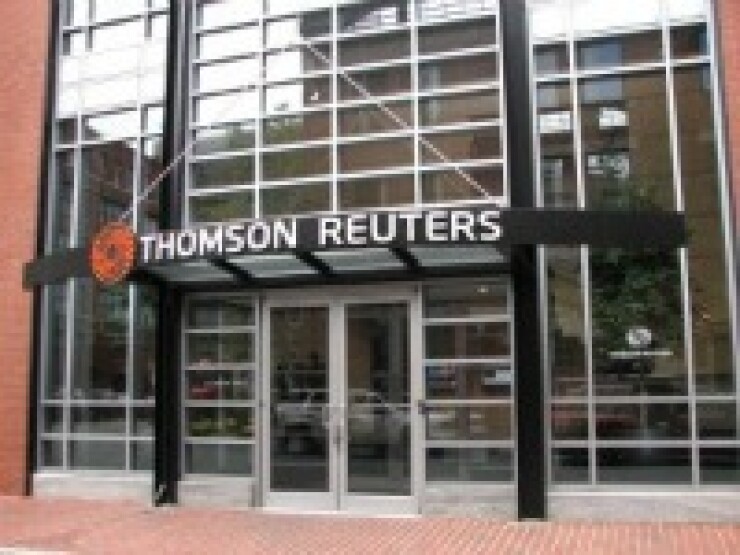Thomson Reuters plans to invest $100 million per year in artificial intelligence starting next year, with plans to integrate the technology in its tax research and tax preparation systems as well as other areas.
"The places we are going to be focusing on are some of the biggest, most enduring pain points that we know our customers have," said Piritta van Rijn, Thomson Reuters' global head of product, tax and accounting. "How do we help create more efficient workflows for them and make sure that work moves quickly and smoothly through the system and connects across systems? How can we help them get trusted answers more quickly? With our research products, how can we help them find insights, advice and solutions that they can present to their clients? How can we help them better manage the client collaboration, the back and forth of collecting data and documents and providing answers to their clients?"
She pointed to the $100 million investment in AI. "That's a very powerful investment combined with the resources and expertise that we already have, whether it's those experts in tax and accounting or our strong team of engineering talent and growing group of generative AI experts specifically," she added.

Thomson Reuters has already begun pouring money into AI, and last week it
Last November, Thomson Reuters
"We're moving to integrate SurePrep and the power that it brings in their client collaboration tool, data processing and the kind of auto completion or extraction and application of data from the source documents," said van Rijn.
The company also released a
"There is broad awareness now in the tax and accounting industry, about the opportunities for generative AI and ChatGPT to really help augment the work that they do, and maybe get rid of some of the tedious, repetitive stuff out there," said van Rijn.
Despite research sharing strong feelings about generative AI's potential utility, many within the legal and tax fields are still weighing their options before adopting the technology. Only 4% of the respondents are currently using generative AI in their operations, with an additional 5% planning to do so. Tax and accounting firms are more open to the idea, with a 15% adoption or planned adoption rate.
Among those who have adopted or are planning to adopt generative AI technologies, research was the main use case cited by respondents, as approximately two-thirds of those in corporate legal and 80% of those in tax identified it as the most compelling use. Knowledge management, back-office functions and question answering services were also cited as use cases of interest.
"The areas where firms see the opportunities arising first are in research, helping get answers to critical questions faster and bring that knowledge to all the members of the firm," said van Rijn. "Some even believe that there are opportunities in the creation of compliance products and compliance work. We can see the opportunities to help increase accuracy in those products or to help prepare returns so that they can still be reviewed by human experts. We know certainly tax and accounting are not black and white areas. There is a high degree of expertise and judgment that continue to be required."
Risk perception seems to be the major stumbling block in the adoption of generative AI tools. Around 69% of respondents expressed risk concerns, suggesting that fear may be holding back a more widespread adoption.
Despite concerns around the risks to privacy, security, and accuracy, few organizations are actively taking steps to limit the use of generative AI or ChatGPT among employees. Twenty percent of respondents said their firm or company has warned employees against the unauthorized use of generative AI at work. Only 9% of all respondents reported their organization had banned the unauthorized use of generative AI.
Technology experts have warned about the tendency of generative AI tools to "hallucinate" and make up fictitious information that sounds convincing enough to be relied on by users, as well as the dangers of making client data available to systems that are used by millions of users.
"When we asked the participants about ChatGPT as a public facing tool, the concerns around privacy are still very real, and thinking about the confidentiality of the information that's being shared about their clients, " said van Rijn. "Data security and accuracy are absolutely critical to the value that tax and accounting professionals create. It's understandable that those are concerns, and those are pieces that will have to be addressed before ChatGPT or generative AI become really widely adopted solutions. The examples that we saw participants in the report referring to are places where ChatGPT and generative AI can help them lower risk. In the first months since ChatGPT's public appearance, those barriers to adoption do have to be addressed and overcome."





